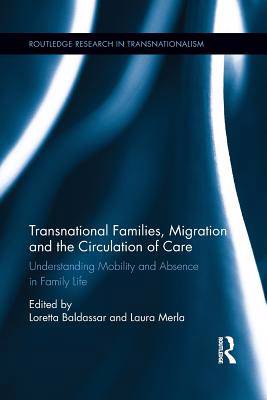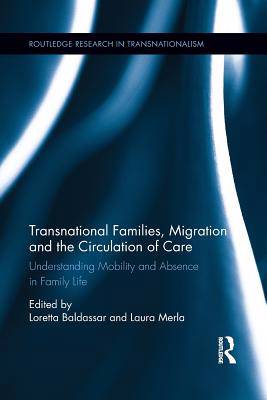
- Afhalen na 1 uur in een winkel met voorraad
- Gratis thuislevering in België vanaf € 30
- Ruim aanbod met 7 miljoen producten
- Afhalen na 1 uur in een winkel met voorraad
- Gratis thuislevering in België vanaf € 30
- Ruim aanbod met 7 miljoen producten
Transnational Families, Migration and the Circulation of Care
Understanding Mobility and Absence in Family Life
Omschrijving
Without denying the difficulties that confront migrants and their distant kin, this volume highlights the agency of family members in transnational processes of care, in an effort to acknowledge the transnational family as an increasingly common family form and to question the predominantly negative conceptualisations of this type of family. It re-conceptualises transnational care as a set of activities that circulates between home and host countries - across generations - and fluctuates over the life course, going beyond a focus on mother-child relationships to include multidirectional exchanges across generations and between genders. It highlights, in particular, how the sense of belonging in transnational families is sustained by the reciprocal, though uneven, exchange of caregiving, which binds members together in intergenerational networks of reciprocity and obligation, love and trust that are simultaneously fraught with tension, contest and relations of unequal power. The chapters that make up this volume cover a rich array of ethnographic case studies including analyses of transnational families who circulate care between developing nations in Africa, Latin America and Asia to wealthier nations in North America, Europe and Australia. There are also examples of intra- and extra- European, Australian and North American migration, which involve the mobility of both the unskilled and working class as well as the skilled middle and aspirational classes.
Specificaties
Betrokkenen
- Uitgeverij:
Inhoud
- Aantal bladzijden:
- 320
- Taal:
- Engels
- Reeks:
Eigenschappen
- Productcode (EAN):
- 9781138952935
- Verschijningsdatum:
- 16/09/2015
- Uitvoering:
- Paperback
- Formaat:
- Trade paperback (VS)
- Afmetingen:
- 155 mm x 226 mm
- Gewicht:
- 430 g

Alleen bij Standaard Boekhandel
Beoordelingen
We publiceren alleen reviews die voldoen aan de voorwaarden voor reviews. Bekijk onze voorwaarden voor reviews.










